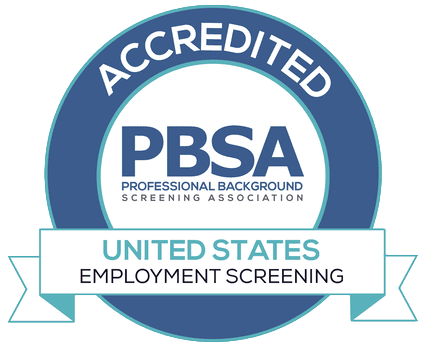Navigating the Legal Maze: Ensuring FCRA Compliance in Background Screening Practices
In today’s competitive job market, background screening has become an indispensable step in the hiring process for numerous organizations. Yet, veering off course from the regulations clearly outlined in the Fair Credit Reporting Act (FCRA) can result in costly legal battles and damage your company’s reputation. To aid you in navigating this intricate legal landscape and mitigating potential risks, we’ve assembled essential guidelines for ensuring FCRA compliance in your background screening practices.
Understanding FCRA Requirements: The FCRA lays down stringent guidelines for employers utilizing consumer reports for employment purposes. These stipulations necessitate obtaining consent from the applicant prior to conducting a background check, issuing pre-adverse action notices if adverse information surfaces, and affording applicants the chance to contest any inaccuracies.
Partnering with a PBSA Accredited Screening Provider: To diminish legal risks, consider aligning with a Professional Background Screening Association (PBSA) accredited background screening provider such as ProVerify™, as they are well-versed in FCRA compliance. Accredited providers adhere to rigorous industry standards and stay abreast of the latest legal developments, ensuring the legality of your screening processes. Pro Tip: Make sure the firm is accredited, and not just a paid member.
Securing Applicant Consent: Acquiring applicant consent is a pivotal requirement under the FCRA. Ensure written authorization from the applicant before commencing a background check, whether on paper or through a secure electronic system. Clearly articulate the nature and scope of the background check, and if using an electronic process, notify applicants beforehand to expect an email with the link to complete the documents online, this will help to prevent delays because an email went to spam or was missed.
Adhering to Adverse Action Procedures: If the consumer reporting agency report reveals that adverse information was discovered during the background screening process, and that information will result in you not hiring the candidate, employers must adhere to specific adverse action procedures outlined in the FCRA. This encompasses furnishing applicants with pre-adverse action notices, copies of consumer report(s), and summaries of their rights under the FCRA. Following a reasonable review period and potential disputes, employers must provide a final adverse action notice if the decision remains unchanged. ProVerify™ clients can easily access these tools on our online portal and can easily seek additional assistance to ensure compliance with these procedures. Pro Tip: Failing to grant candidates the opportunity to dispute adverse findings is not only against the law but could result in your organization losing valuable talent due to avoidable clerical errors.
Ensuring Accuracy and Transparency: Accuracy and transparency are paramount in background checks. By partnering with a dependable, accredited firm, you can guarantee the accuracy and currency of obtained information. Your background screening policy should offer clear explanations to applicants about the purpose and scope of the check, alongside transparency regarding adverse findings and avenues for explanation or correction.
Implementing Ongoing Compliance Measures: Compliance with FCRA regulations is an ongoing endeavor demanding vigilance and meticulous attention to detail. Routinely review your background screening policies and procedures to ensure alignment with evolving legal standards. Provide comprehensive training for HR staff involved in the hiring process to equip them with a solid understanding of their FCRA responsibilities and the aptitude to handle background checks effectively.
Navigating the complexities of FCRA compliance in background screening practices is indispensable for mitigating legal risks and preserving your organization’s reputation. By comprehending FCRA requirements, collaborating with accredited screening providers, ensuring accuracy and transparency, securing applicant consent, adhering to adverse action procedures, and implementing ongoing compliance measures, you can minimize the probability of costly lawsuits and maintain trust with both applicants and employees.
A few notable FCRA lawsuits:
- FCRA Lawsuit File Against Cruise Line Over Pre-Adverse Action Notices
- Top 7 Most Notable FCRA Cases of 2023 by Troutman Pepper
- $7.5 Million Class Action Suit Against Uber for FCRA Violations
For additional resources:
- Full FCRA document: FCRA Document
- Informational Adverse Action Checklist: Adverse Action Checklist
- For further inquiries, contact: sales@applicationverification.com





